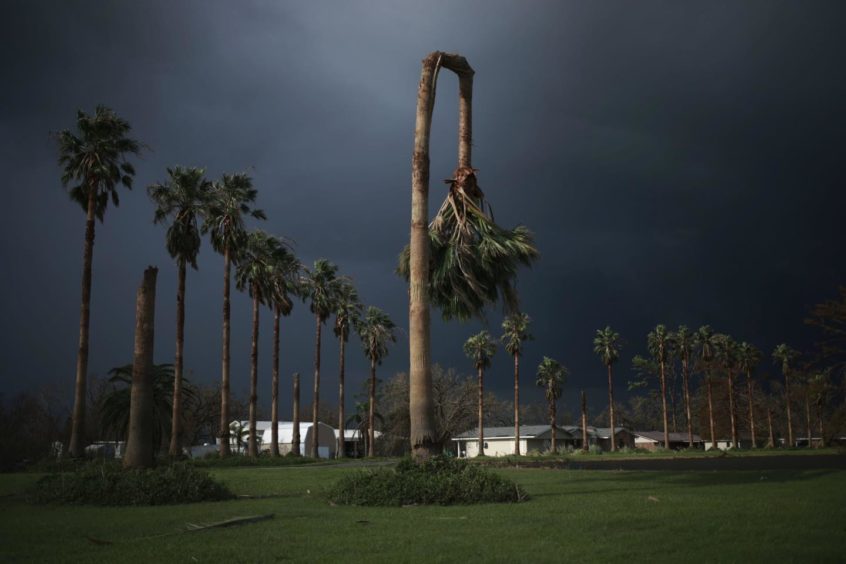
Oil and gas producers, and refineries that fuel the US, are assessing the impact on operations after the passage of Hurricane Ida, with peak daily supply curtailment of 1.8 million barrels per day recorded in the Gulf of Mexico. As a result of the disruption price volatility can be expected in global crude markets.
Rystad Energy’s initial assessment of Hurricane Ida’s impact on US oil production and refinery capacity estimates a peak daily supply curtailment of 1.8 million barrels per day in the Gulf of Mexico, which currently has a peak daily production capacity of 1.9 million bpd. Based on reported power outages and the closure of refineries in preparation for the storm, nearly 2 million bpd of US Gulf Coast refining capacity is estimated to be currently offline.
As was the case with major hurricane and storm events during the 2016-2020 period, Rystad estimates the cumulative production outage impact to be equivalent to 5.5 days of maximum capacity, assuming rapid reactivation to start as soon as 31 August and 1 September.
On the trade flows side, the EIA stated that the following ports capable of receiving petroleum products are closed: Baton Rouge, Gramercy, New Orleans, Morgan City and Lake Charles ports in Louisiana; Pascagoula in Mississippi; and Mobile in Alabama. Louisiana Offshore Oil Port (LOOP) suspended operations at its marine terminal earlier, on 28 August. Furthermore, Rystad estimates that around 13 million barrels of crude oil is awaiting to offload in the US Gulf Coast region.
Full extend of the damage
It could be quite some time before a full extent of the damage is known, with access to many facilities along the Louisiana coast still severely limited. Crews have been able to make aerial surveys, but roads are largely impassable due to high water and downed trees, reported Bloomberg.
At least 2 million barrels a day of oil refining capacity was affected by the weather pattern, which cut power across Louisiana and left at least one facility in standing water. About 94% of oil and gas output had been shut-in as of Tuesday, according to the Bureau of Safety and Environmental Enforcement.
Here is a list of major oil and gas production sites that were shut and their capacity in barrels per day, or barrels of oil equivalent a day.
BP Plc
Atlantis, 200,000 b/d
Mad Dog, 100,000 b/d
Na Kika, 130,000 b/d
Thunder Horse, 250,000 b/d
Royal Dutch Shell Plc
Turritella (including Stones field) 50,000 boe/d (at peak), Stones field working to resume partial production
Mars, 60,000 boe/d
Olympus, 100,000 boe/d
Appomattox, 175,000 boe/d
Ursa, 150,000 boe/d
Auger, 130,000 boe/d
Enchilada/Salsa, capacity not specified
Equinor SA
Titan, 2,000 boe/d (producing rate in 2Q)
BHP Group
Shenzi, 100,000 b/d and 50 mmcf/d gas
Murphy Oil Corp.
Shut in production, up to 4,100 boe/d
Chevron Corp.
Shut all oil and natural gas platforms; volume not specified
Average net daily production in 2018 was 186k bbl of crude, 105 million cubic feet of natural gas and 13k bbl of NGLs: website
Exxon Mobil Corp. evacuated personnel from its Hoover platform; minimal impact on production
Ports:
Coast Guard set condition Zulu for New Orleans
LOOP paused deliveries until after storm
Refineries:
Phillips 66’s 255k b/d Alliance began idling units Friday; plant had standing water after Ida
PBF was reducing rates at 190k b/d Chalmette; no power since Sunday, co. said Monday
Shell was shutting 230k b/d Norco; some buildings at the refinery and chemical plant complex were damaged, though co. didn’t specify where; no estimate for completing repairs and returning to normal operations, according to co. statement
Marathon shut production at 578k b/d Garyville; co. evaluating restart timeline as of Monday, didn’t comment on whether facility had power loss
Valero halted 340k b/d St. Charles and 125k b/d Meraux
ExxonMobil’s 520k b/d Baton Rouge ran at about 50% capacity before Ida; refinery halted units Sunday but didn’t sustain damage and will begin restart process once Exxon confirms that it has access to necessary feedstocks and third-party utilities to stabilize systems
Pipelines:
Williams Cos.’s Discovery Gas Transmission declares force majeure event effective Aug. 31 because of downstream constraints due to Ida; Discovery says it will perform a damage assessment of its facilities to safely return to service; unknown how long assessment will take